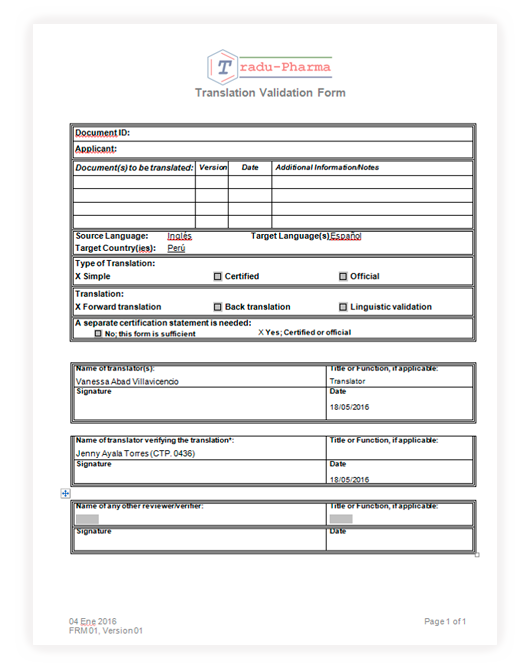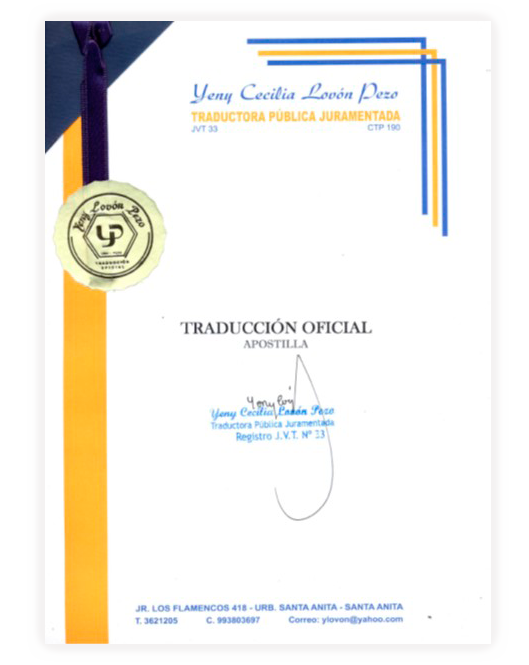These are translations made by a professional technician or translator, which are usually delivered as a Word document (electronic and/or printed) and does not bear any stamp/name/declaration/identifier of the person who made the translation. These documents can be delivered together with a Validation Format (owned by Tradupharma or the client) where information of people who made both the translation and correction of the texts is indicated.
This type of translation is normally used for Researcher’s brochures, Inserts, CoAs, SUSARs, Descriptive Memories, Data Sheets, Manuals, Analytical Methods, Scientific Articles, Reports, Resolutions, Notifications, Records, Communications in general, etc.
They have a fairly high processing speed (usually applied to large documents) that can be done in all languages without any restrictions. Moreover, these types of translations can be managed entirely in a virtual way and have the cheapest cost in relation to other types of translations.
All our simple translations are always delivered diagrammed in such a way that they have a similar appearance and arrangement as the original document; therefore, there are no problems when citing pages or understanding the schematic structure.


 Español
Español Français
Français Italiano
Italiano


